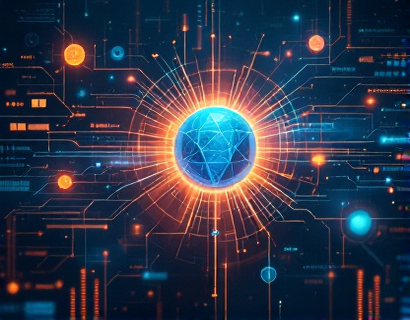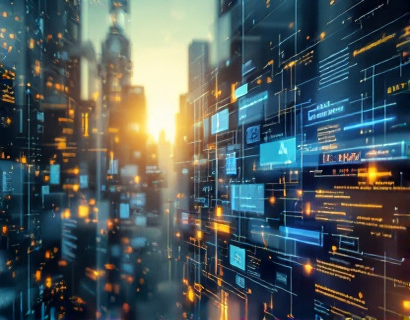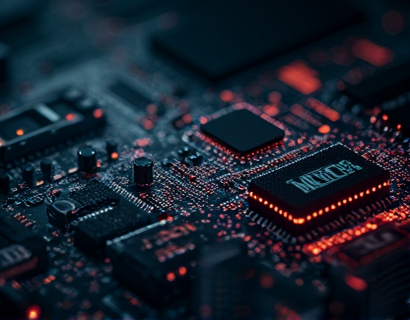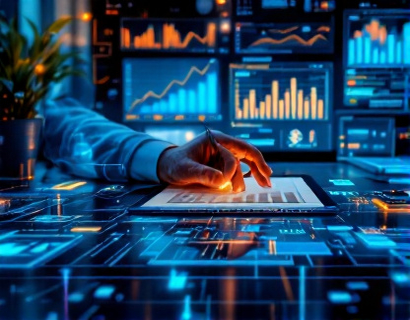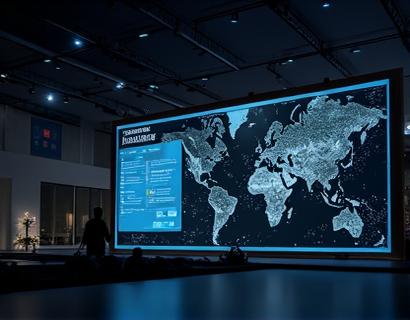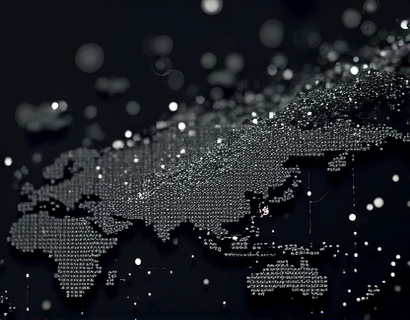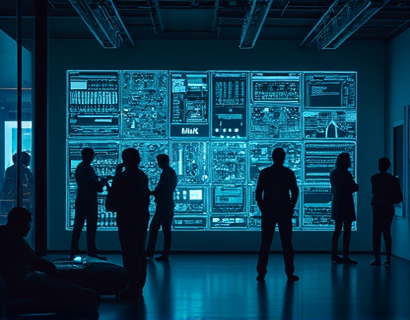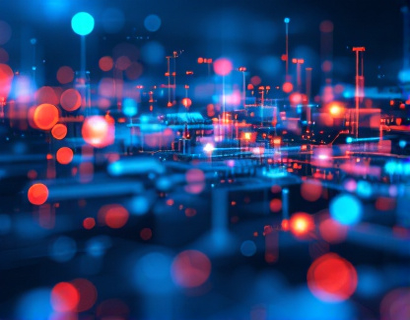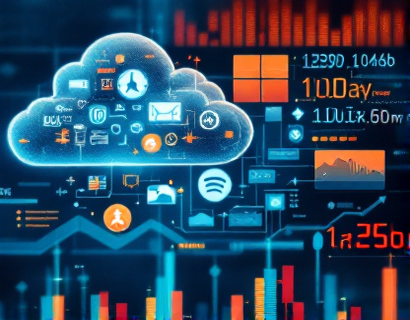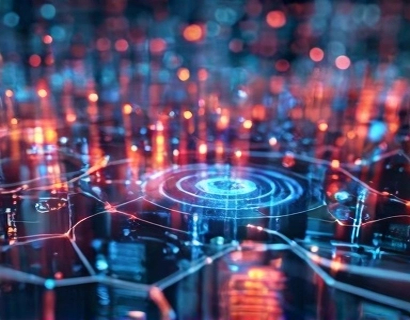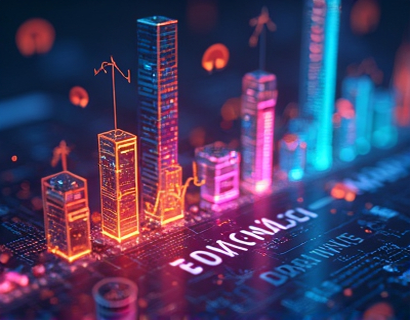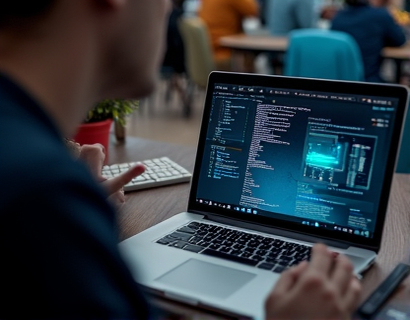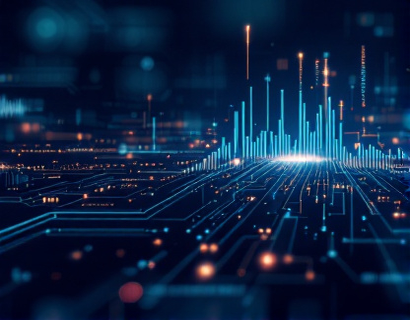Decentralized Productivity: Harnessing AI and Crypto for Next-Gen App Ecosystems and Enhanced User Experience
The integration of artificial intelligence (AI) and cryptocurrency is paving the way for a new era of decentralized productivity tools and app ecosystems. This transformative convergence promises to revolutionize how we interact with technology, enhancing efficiency and user experience. As we delve into this topic, it's essential to understand the foundational elements that make this possible and the profound impact it has on various sectors, from tech enthusiasts to productivity professionals.
The concept of decentralized applications, or dApps, has been gaining traction since the advent of blockchain technology. Unlike traditional applications that rely on centralized servers, dApps operate on a distributed network, ensuring greater transparency, security, and user control. The addition of AI to this framework amplifies its potential, enabling smarter, more intuitive, and highly efficient applications.
Foundations of Decentralized Productivity
To grasp the full scope of decentralized productivity, we must first explore the core components of blockchain technology and AI. Blockchain, at its essence, is a distributed ledger that records transactions across multiple computers in such a way that the registered transactions cannot be altered retroactively. This inherent immutability and transparency make it an ideal foundation for decentralized systems.
AI, on the other hand, involves the simulation of human intelligence processes by machines, particularly computer systems. These processes include learning (the acquisition of information and rules for using it), reasoning (using rules to reach approximate or definite conclusions), and self-correction. When combined, these technologies can create applications that not only store and process data securely but also learn from user interactions to improve performance over time.
AI in Decentralized App Ecosystems
The integration of AI into decentralized app ecosystems brings about a paradigm shift in how these applications function. AI can be used to automate complex tasks, provide personalized user experiences, and enhance security measures. For instance, AI-driven algorithms can analyze user behavior to optimize workflows, predict user needs, and even detect and prevent fraudulent activities.
One of the key benefits of AI in decentralized applications is its ability to operate without a central authority. This means that AI models can be trained and updated across the network, ensuring that all participants benefit from the latest advancements without relying on a single entity. This decentralized approach to AI development fosters innovation and accelerates the pace of technological progress.
Cryptocurrency and Decentralized Economies
Cryptocurrency plays a pivotal role in the decentralized economy, serving as a medium of exchange that operates independently of traditional financial systems. In the context of decentralized app ecosystems, cryptocurrency enables seamless transactions, incentivizes participation, and ensures fair compensation for contributors. Smart contracts, self-executing contracts with the terms directly written into code, further automate and secure these transactions.
The use of cryptocurrency also addresses some of the core issues with centralized systems, such as censorship, high transaction fees, and long processing times. By leveraging blockchain, decentralized applications can offer faster, cheaper, and more reliable transactions, making them highly attractive for productivity tools and services.
Enhanced User Experience through Decentralized Solutions
The user experience (UX) is a critical factor in the success of any application. Decentralized solutions, powered by AI and cryptocurrency, offer several advantages that enhance UX. For one, the decentralized nature of these applications ensures that users have full control over their data and privacy. Users can choose what information to share and with whom, reducing the risk of data breaches and unauthorized access.
AI-driven personalization takes UX to the next level by tailoring the application to individual user preferences and behaviors. This level of customization not only makes the application more user-friendly but also increases user engagement and satisfaction. For example, an AI-powered productivity app can learn a user's habits and suggest optimal work schedules, task prioritization, and even provide real-time assistance based on the user's current context.
Case Studies and Real-World Applications
To better understand the practical implications of decentralized productivity enhanced by AI and cryptocurrency, let's examine a few real-world examples. One notable platform is Filecoin, a decentralized storage network that uses AI to optimize data storage and retrieval. By incentivizing users to share their storage capacity, Filecoin ensures a robust and distributed storage system, while AI algorithms manage data placement and access efficiently.
Another example is Uniswap, a decentralized exchange for trading cryptocurrencies. Uniswap uses AI to analyze market trends and optimize liquidity pools, ensuring smooth and efficient trading experiences. The use of smart contracts guarantees transparent and trustless transactions, eliminating the need for intermediaries and reducing costs.
Challenges and Considerations
While the potential of decentralized productivity tools is immense, there are several challenges and considerations that need to be addressed. Scalability remains a significant issue, as blockchain networks often struggle to handle high volumes of transactions efficiently. However, ongoing developments in layer 2 solutions and more efficient consensus mechanisms are gradually mitigating these problems.
Another challenge is the user adoption curve. Decentralized applications and blockchain technology can be complex and intimidating for new users. Simplifying the user interface and providing intuitive onboarding processes are crucial for widespread adoption. Education and community support also play a vital role in helping users understand and leverage these advanced technologies.
Future Prospects and Innovations
Looking ahead, the integration of AI and cryptocurrency in decentralized app ecosystems is poised for significant growth and innovation. Advancements in machine learning and quantum computing will further enhance the capabilities of these applications, making them more powerful and versatile. The convergence of these technologies will likely lead to the development of entirely new categories of applications that we can only begin to imagine today.
Moreover, the rise of decentralized finance (DeFi) and the expansion of non-fungible tokens (NFTs) are opening new avenues for productivity and creativity. DeFi platforms powered by AI can offer sophisticated financial tools and services, while NFTs can be used to represent unique digital assets and rights within decentralized applications.
Conclusion
The fusion of AI and cryptocurrency is transforming the landscape of productivity tools and app ecosystems. By leveraging the strengths of decentralized technologies, these innovations are not only enhancing user experience but also fostering a more inclusive and secure digital environment. As we continue to explore and develop these solutions, the potential for creating smarter, more efficient, and user-centric applications is limitless. Embracing this decentralized future is essential for anyone looking to stay ahead in the rapidly evolving tech landscape.





